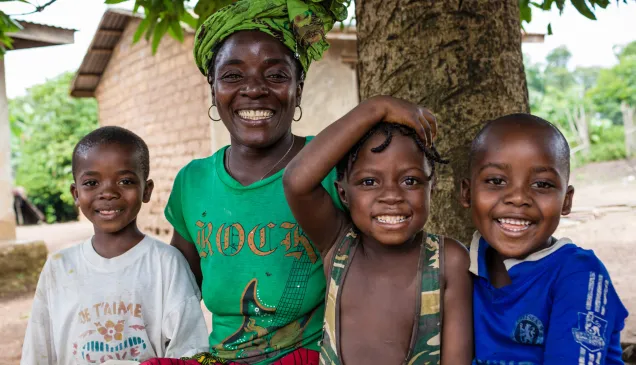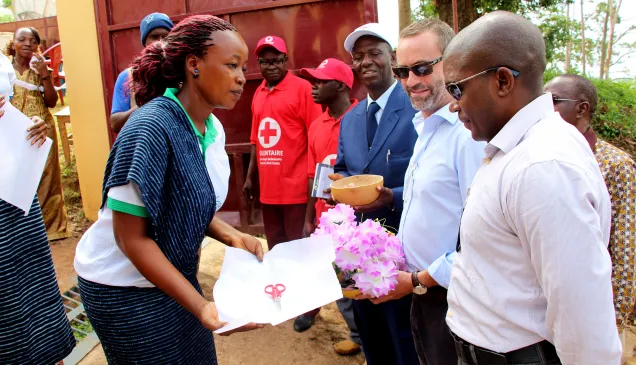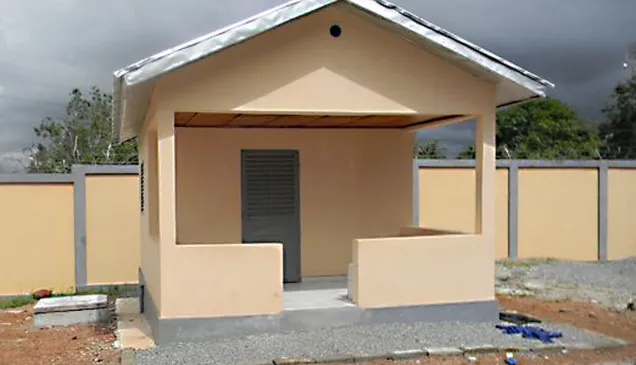Guinea: Wells bring drinking water to villages
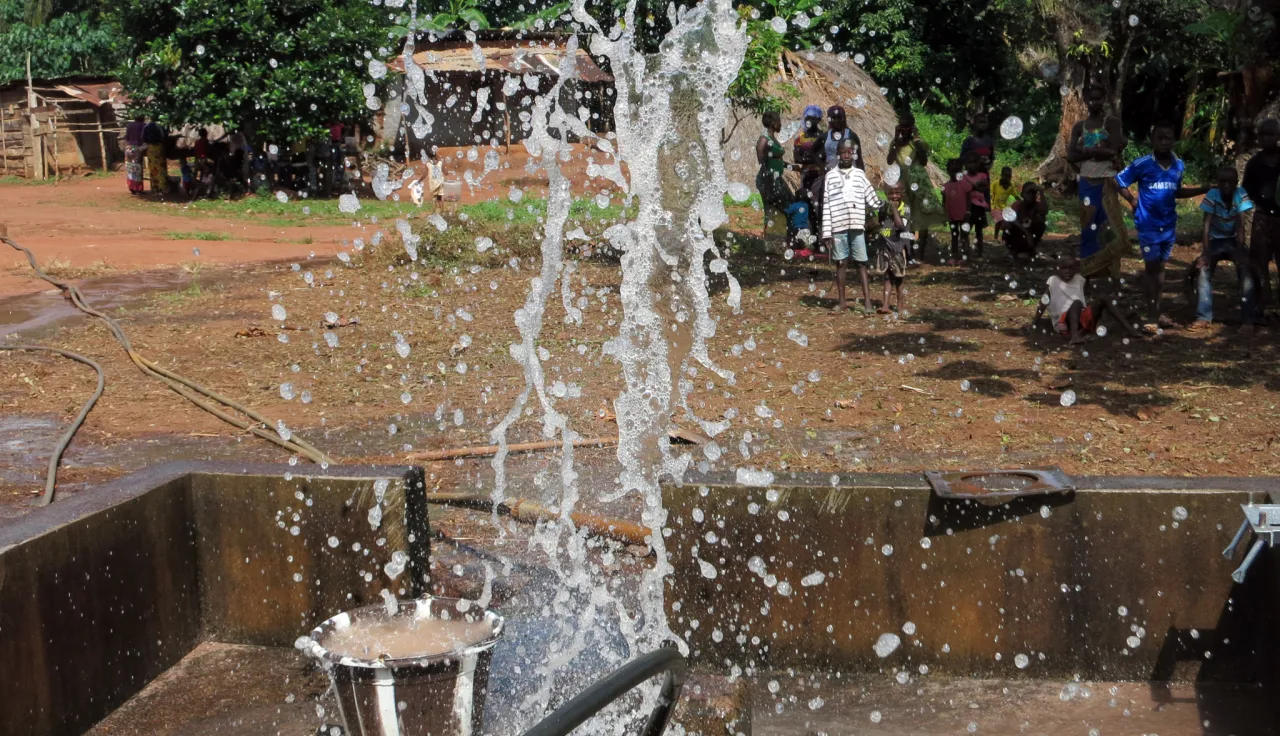
In 2015, the ICRC dug 20 new water wells in rural Guinea and repaired 85 more. Thanks to our work, over 123,000 people in 90 villages now have access to clean, safe water.
Water flowing again in Filaya
Filaya, in Dubréka district, has only one source of clean water for its 1,300 inhabitants: a borehole, dug in 2001, which hasn't worked for over two years. Mbalya Camara explained the difficulties this has caused: "Since the borehole broke down, the girls regularly go and get water at the spring, an hour and a half away on foot. They carry the 20-litre jerrycans on their heads. During the school year, though, we draw from the backwater, which is closer. It still means making at least seven trips per family. We know the water is stagnant, but what else can we do?"
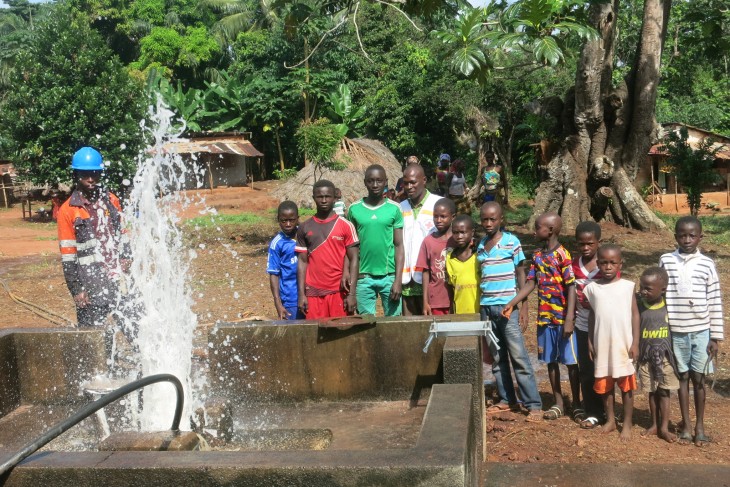
Filaya (Dubréka), Guinea. Village children watch, fascinated, as water gushes up from the well. CC BY-NC-ND / ICRC / Kadiatou Baldé.
We repaired Filaya's borehole so that the villagers could have drinking water near their homes again. As the technicians work to clear the silt out of the borehole, children stand around watching, fascinated by the water gushing out of the well. The village elders are there too. One of them exclaims, "Thank you! This borehole means so much to us. May God bless you, as he is the only one who can repay you!"
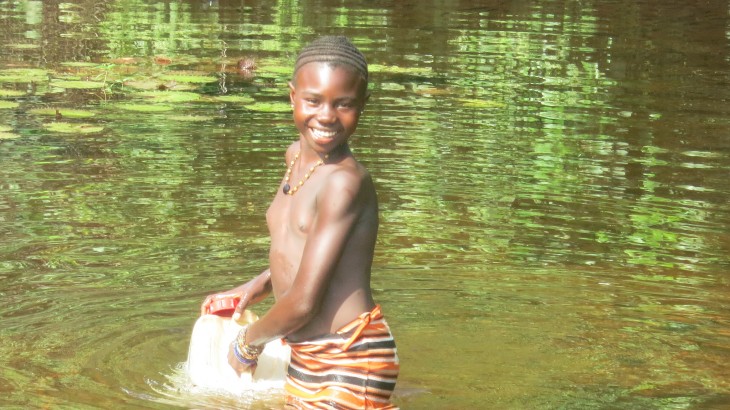
Filaya (Dubréka), Guinea. A girl fills a jerrycan in the backwater. Now she can get clean water from the newly repaired well. CC BY-NC-ND / ICRC / Kadiatou Baldé.
"We don't dread the dry season any more"
We have also repaired boreholes in the villages of Toulel and Dhodjori. Nènè Aissata, who lives in Toulel, is delighted. "When the streams dry up each year, finding drinking water becomes horribly difficult. It's one more chore for us women. But now that the village borehole is working again, we don't dread the dry season any more!" she says.
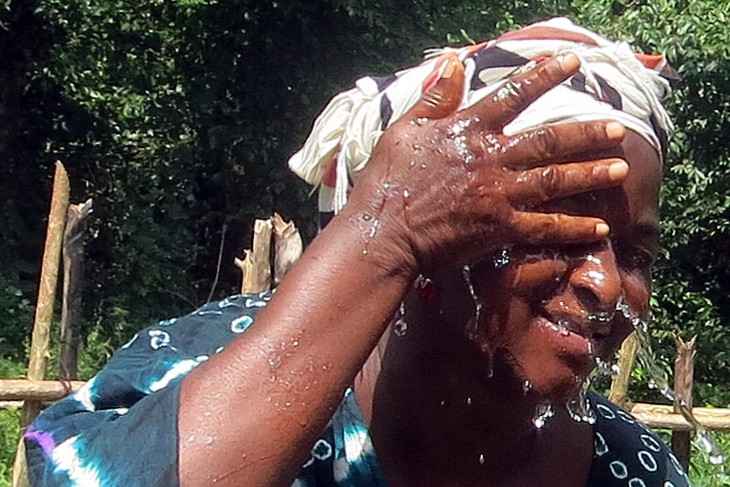
Toulel, Guinea. Nènè Aissata rinses her face with water from the borehole repaired by the ICRC. CC BY-NC-ND / ICRC / Kadiatou Baldé.
The village health worker sees another potential use of the borehole: washing. He has heard several people complaining of itchy skin. "In the dry season, the water level drops so low that stagnant pools form. The water gets infested, so when people wash themselves in it they can develop skin conditions. There's an even bigger risk for small children, who sometimes swallow bath water. I'm going to tell people in the village to use the borehole water for washing themselves and their clothes, as well as drinking."
"We need our borehole working again"
In Dhodjori, the repair work is almost complete, but for now the water flowing from the borehole is still cloudy, and contains too much iron. A villager points to the backwater: "We draw water for drinking up there, and we do our washing-up and laundry down there. So you can see why we need our borehole working again!" The words are no sooner out of his mouth than a young woman appears. Wading into the creek, she dips a cup into the water and then drinks deeply from it. "I was so thirsty!" she says, oblivious to the health risk. Once the repairs are finished, she and others won't have to run that risk again.
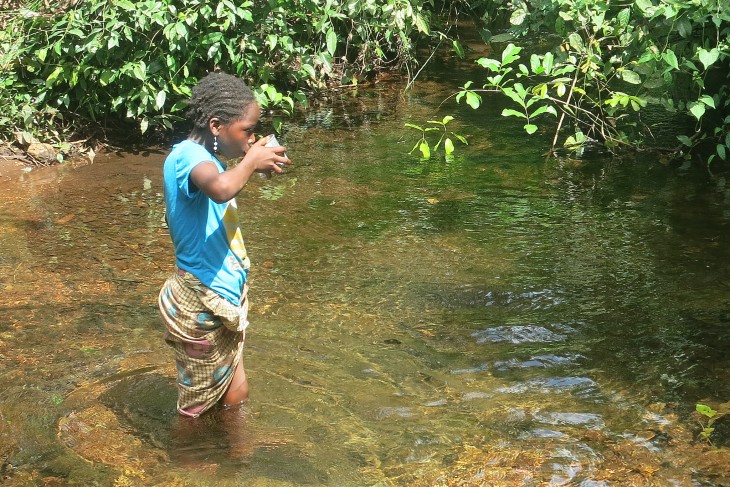
Dhodjori, Guinea. A thirsty young woman drinks from the backwater, seemingly oblivious to the risk she's running. Once the ICRC has finished repairing the well in her village, she'll be able to drink water that is clean and safe. CC BY-NC-ND / ICRC / Kadiatou Baldé.
Repairing boreholes and making sure they last
In Tormelin, the ICRC has drilled 8 new boreholes and repaired 10 others. Fatou Sylla is pregnant: "In my condition, I can't walk far to get the water my family needs. Now that the well is fixed, it's not a problem any more. You can't imagine the difference it makes."
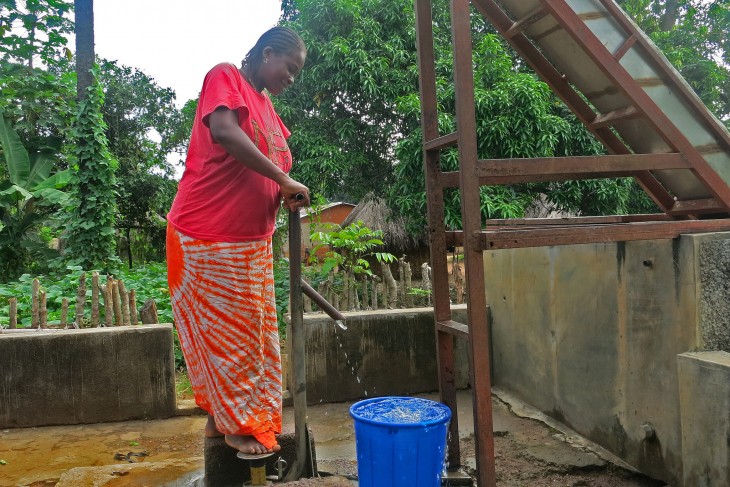
Tormelin, Guinea. A pregnant woman draws water at a borehole repaired by the ICRC. CC BY-NC-ND / ICRC / Kadiatou Baldé.
Another woman reports happily, "For more than a year we couldn't use the borehole near my family's home, but thanks to these repairs everyone in the village can easily get drinking water now. Even small children come and draw water for their baths."
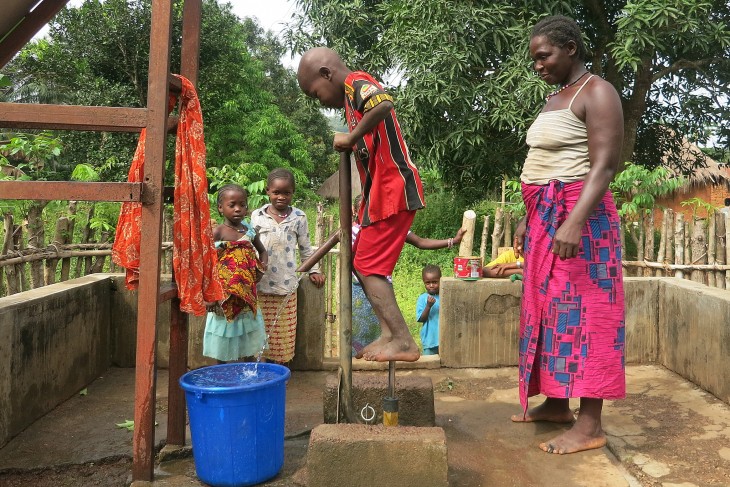
Tormelin, Guinea. A boy in the village of Madina Wounsan draws water at the borehole repaired by the ICRC. CC BY-NC-ND / ICRC / Kadiatou Baldé.
In Tanènè Marché, the local repairman is busy replacing a broken borehole part, helped by Mouctar Barry, one of our engineers. We fund training for local repairmen in every village where we install or repair a water well. "If the villagers can deal with minor breakdowns, it means the wells will last longer. It also gets the communities involved and makes them feel more responsible for maintenance," he explains.
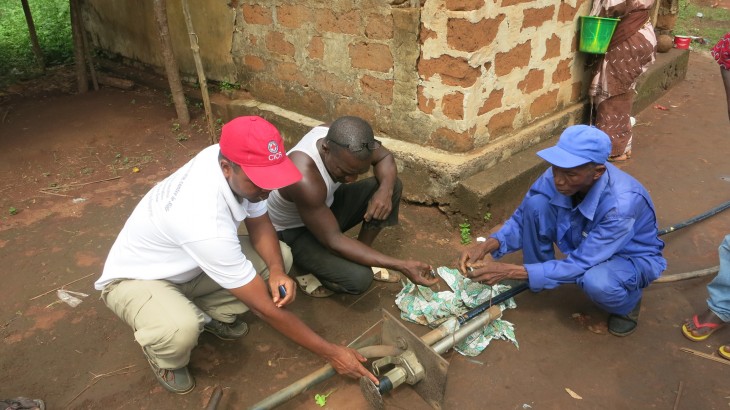
Tanènè Marché, Guinea. The village repairman replaces a part in the borehole fixed by the ICRC. CC BY-NC-ND / ICRC / Kadiatou Baldé.

